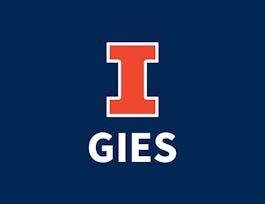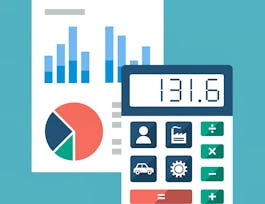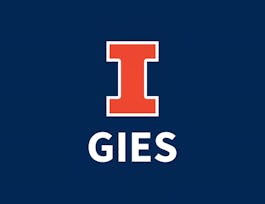In this course, you will learn how to use accounting to facilitate and align decisions made by owners, managers, and employees. You will learn how accountants create, organize, interpret, and communicate information that improves internal processes and allows organizations to identify and leverage opportunities to create value within the supply chain and with customers.


Managerial Accounting: Cost Behaviors, Systems, and Analysis
This course is part of Value Chain Management Specialization
Taught in English
Some content may not be translated

Instructor: Gary Hecht, Ph.D.
57,609 already enrolled
Included with 
Course
(1,315 reviews)
96%
Skills you'll gain
Details to know

Add to your LinkedIn profile
14 quizzes
Course
(1,315 reviews)
96%
See how employees at top companies are mastering in-demand skills

Build your subject-matter expertise
- Learn new concepts from industry experts
- Gain a foundational understanding of a subject or tool
- Develop job-relevant skills with hands-on projects
- Earn a shareable career certificate


Earn a career certificate
Add this credential to your LinkedIn profile, resume, or CV
Share it on social media and in your performance review

There are 4 modules in this course
In this module, you will become familiar with the course, your instructor, your classmates, and our learning environment. Then, you will be introduced to Managerial Accounting and Costing Concepts.
What's included
12 videos9 readings4 quizzes
Organizations can organize cost information however best suits their decisions. In this module, we introduce the role of costing systems, identify some example systems and settings in which they are most useful, and explore how accounting for overhead costs influences the value of cost information.
What's included
8 videos2 readings3 quizzes
Activity-based costing systems adopt a more refined view of the organization, and can increase the accuracy of cost information. In this module, we introduce the fundamentals of activity-based costing systems, identify related advantages and disadvantages, and demonstrate how such systems are implemented using an in-depth example.
What's included
8 videos2 readings3 quizzes1 peer review
Cost-volume-profit (CVP) analysis is the tool that managers can use to better understand the answers to "what-if" questions in order to make better decisions for their companies. In this module you will explore the power of CVP analysis.
What's included
7 videos4 readings4 quizzes1 peer review
Instructor

Recommended if you're interested in Finance

University of Illinois at Urbana-Champaign

University of Illinois at Urbana-Champaign

University of Virginia

University of Illinois at Urbana-Champaign
Get a head start on your degree
This course is part of the following degree programs offered by University of Illinois at Urbana-Champaign. If you are admitted and enroll, your coursework can count toward your degree learning and your progress can transfer with you.
Why people choose Coursera for their career




Learner reviews
Showing 3 of 1315
1,315 reviews
- 5 stars
78.64%
- 4 stars
17.40%
- 3 stars
2.73%
- 2 stars
0.37%
- 1 star
0.83%
New to Finance? Start here.

Open new doors with Coursera Plus
Unlimited access to 7,000+ world-class courses, hands-on projects, and job-ready certificate programs - all included in your subscription
Advance your career with an online degree
Earn a degree from world-class universities - 100% online
Join over 3,400 global companies that choose Coursera for Business
Upskill your employees to excel in the digital economy
Frequently asked questions
Access to lectures and assignments depends on your type of enrollment. If you take a course in audit mode, you will be able to see most course materials for free. To access graded assignments and to earn a Certificate, you will need to purchase the Certificate experience, during or after your audit. If you don't see the audit option:
The course may not offer an audit option. You can try a Free Trial instead, or apply for Financial Aid.
The course may offer 'Full Course, No Certificate' instead. This option lets you see all course materials, submit required assessments, and get a final grade. This also means that you will not be able to purchase a Certificate experience.
When you enroll in the course, you get access to all of the courses in the Specialization, and you earn a certificate when you complete the work. Your electronic Certificate will be added to your Accomplishments page - from there, you can print your Certificate or add it to your LinkedIn profile. If you only want to read and view the course content, you can audit the course for free.
If you subscribed, you get a 7-day free trial during which you can cancel at no penalty. After that, we don’t give refunds, but you can cancel your subscription at any time. See our full refund policy.

